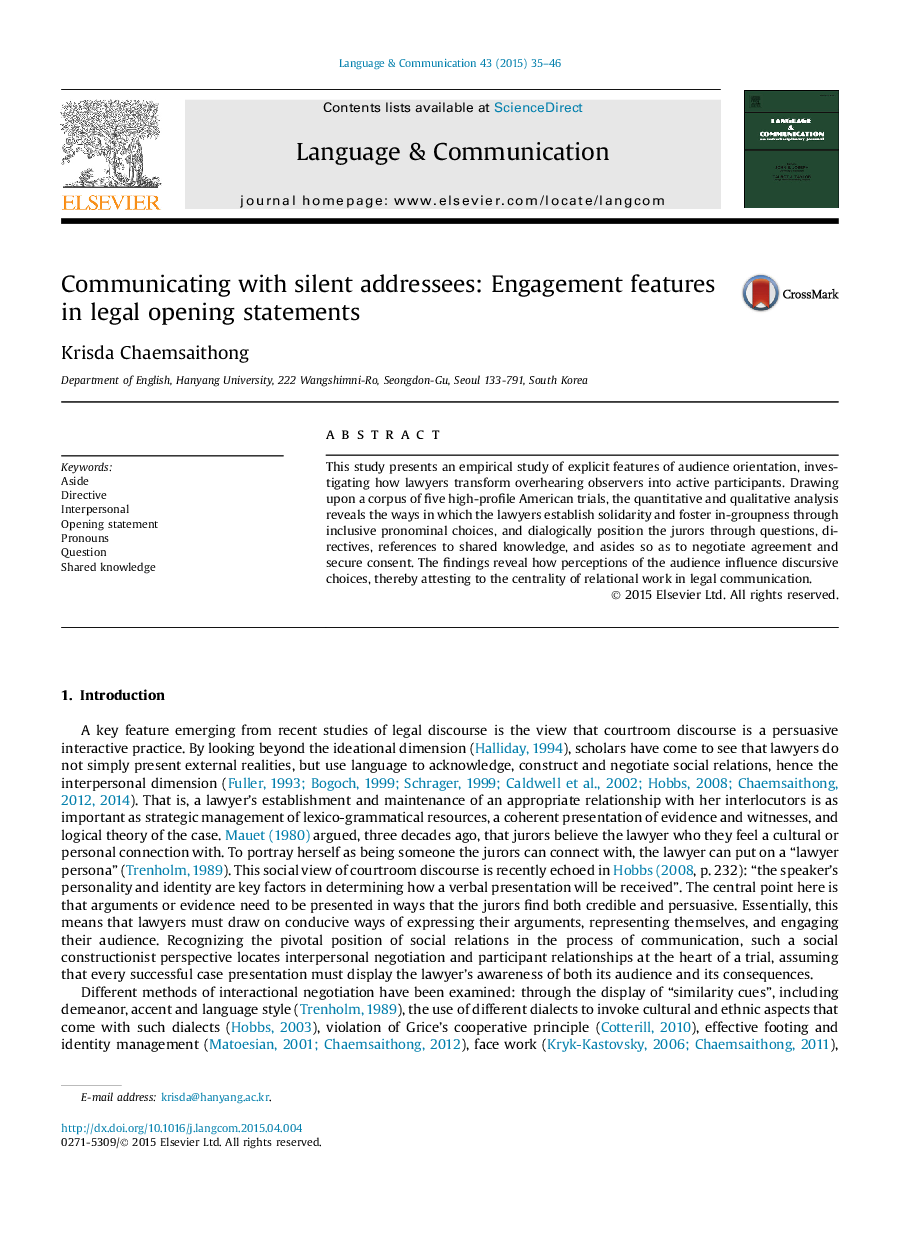| Article ID | Journal | Published Year | Pages | File Type |
|---|---|---|---|---|
| 934763 | Language & Communication | 2015 | 12 Pages |
•Investigates how lawyers explicitly engage silent audience in opening statements.•Lawyers establish solidarity pronominal choices.•The audience is positioned through questions, shared knowledge, and asides.•Lawyers can bypass communicative constraints of the monologic genre.•Relational work and explicit engagement features as central to opening statements.
This study presents an empirical study of explicit features of audience orientation, investigating how lawyers transform overhearing observers into active participants. Drawing upon a corpus of five high-profile American trials, the quantitative and qualitative analysis reveals the ways in which the lawyers establish solidarity and foster in-groupness through inclusive pronominal choices, and dialogically position the jurors through questions, directives, references to shared knowledge, and asides so as to negotiate agreement and secure consent. The findings reveal how perceptions of the audience influence discursive choices, thereby attesting to the centrality of relational work in legal communication.
